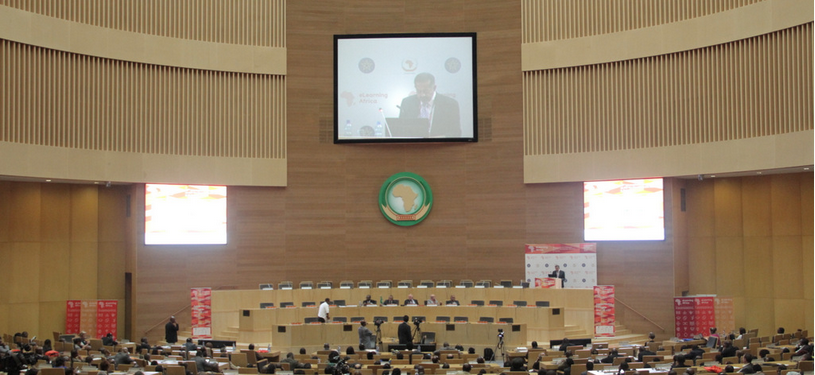A balance is needed between higher education and vocational training in Africa if it is to face the task of upskilling its enormous youth population, education leaders from across the continent have urged.
News and business analysis for Professionals in International Education
Have some pie!
Africa: balance between HE and TVET needed to meet upskill demand
 "What worries a lot of African governments is what happens to their young people if this question isn’t adequately addressed" Photo: eLearning Africa
"What worries a lot of African governments is what happens to their young people if this question isn’t adequately addressed" Photo: eLearning Africa How to increase the profile of vocational education was the main point of discussion at the 10th annual eLearning Africa conference, hosted in Addis Ababa, Ethiopia last month.
“If education is the key to development, TVET is the master key”
The three day conference looked at the role information and communication technologies have in development, education and training across Africa.
Harold Elletson, the editor of the post-conference report, said that as there is currently a lot of development in higher education, the upskilling of the population through TVET will need to be emphasised.
“I think there will be a huge focus on vocational training because what worries a lot of African governments is what happens to their young people if this question isn’t adequately addressed,” he told The PIE News.
“Because then you have disaffected youth on the streets and that’s destabilising, so it’s something they’ve got to address urgently.”
The report noted that some 40% of Africans are under the age of 15. Compared to the world average of 26%, this depicts an overwhelming youth population.
Shyamal Majumdar, head of the UNESCO-UNEVOC international centre for TVET, writes in the report of a general consensus that an educated and well-trained population is necessary for a country’s prosperity, while having a poorly skilled workforce hinders development, brings economic disadvantages, political instability and unemployment.
He goes on to quote the UNESCO-UNEVOC Bonn Declaration: “If education is the key to development, TVET is the master key”.
Elletson said eLearning, particularly through the use of mobile phones, has the potential to train a large number of people quickly.
“Technology is going to continue to develop,” he said. “So the things that mobile phones can do will become increasingly significant and that will have its huge benefits for education.”
“Africa’s got a huge opportunity with the fact that it’s going to have an overwhelmingly young population”
The report also included a study of 1,050 people across Africa, 95% of which said that ICT is vital to improving education in their respective countries.
The gap between usage of laptops and smartphones–the most commonly used ICT device– is fairly narrow with 19% of the respondents saying they used laptops as their main device, to 14% saying smartphones.
As discussed at the conference last year, building the infrastructure across Africa in order to harness this technology is still something which is very much being developed.
“When you look at African countries that have invested in whatever the latest fad is for hardware, like one laptop per child for example, they haven’t done as well as countries which have invested in their communication infrastructure, which then seem to make a huge leap forward,” observed Elletson.
The survey also found that 16% of respondents believe the development of ICT infrastructure, such as broadband and 3G, should take priority in government ICT policies.
“Africa’s got a huge opportunity with the fact that it’s going to have an overwhelmingly young population,” said Elletson.
“And so the challenge is to make sure they get skills that are relevant. Whether you can do it through existing structures or access to overseas education, or whether you can do it by MOOCs for instance, and if there can be a massive expansion of that. All these are related to the question about vocational versus higher education.”
The eLearning Africa post-conference report can be downloaded here.
Still looking? Find by category:



One Response to Africa: balance between HE and TVET needed to meet upskill demand